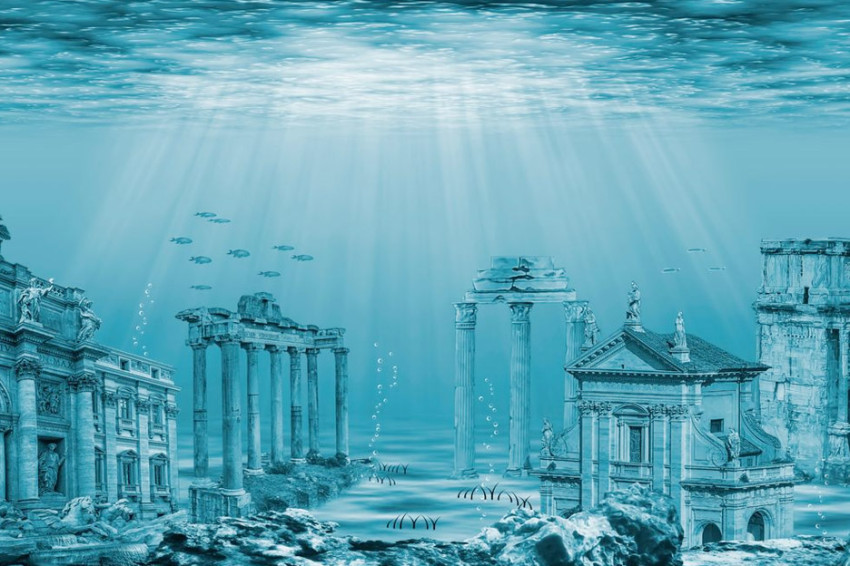
Atlantis: Unearthing the Myths and Mysteries of a Lost Civilization
The name Atlantis conjures images of an advanced, utopian civilization swallowed by the sea, a poignant reminder of humanity’s potential for both greatness and self-destruction. For centuries, the legend of Atlantis has captivated historians, philosophers, and dreamers alike, sparking countless expeditions and fueling endless debates. Was Atlantis a real place, a cautionary tale, or simply a figment of Plato’s imagination? This article delves into the origins of the Atlantis myth, examines the various theories surrounding its possible location, and explores the enduring fascination with this legendary lost world.
The Origins of the Atlantis Myth
The primary source for the Atlantis story comes from Plato, the renowned Greek philosopher. In his dialogues Timaeus and Critias, written around 360 BC, Plato describes Atlantis as a powerful naval empire situated beyond the Pillars of Hercules (now the Strait of Gibraltar). He portrays the Atlanteans as a technologically advanced and morally upright society that eventually succumbed to hubris and greed. According to Plato, Atlantis attempted to conquer Athens, but was ultimately defeated and subsequently destroyed by a cataclysmic earthquake and flood, sinking beneath the waves in a single day and night.
It’s important to note that Plato presented the story of Atlantis not as historical fact, but as an allegory to illustrate his philosophical ideas about ideal government, societal corruption, and the consequences of unchecked power. Some scholars believe that Plato drew inspiration from real-world events, such as the destruction of the Minoan civilization on Crete, which was devastated by a volcanic eruption on the island of Thera (modern-day Santorini) around 1600 BC. [See also: The Minoan Civilization: A Precursor to Ancient Greece]
Searching for Atlantis: Theories and Locations
Despite Plato’s intended allegorical purpose, the allure of Atlantis as a potentially real place has persisted throughout history. Numerous expeditions and theories have attempted to pinpoint the location of this lost civilization, ranging from the Mediterranean to the Atlantic Ocean and even beyond.
The Mediterranean Hypothesis
One of the most popular theories places Atlantis in the Mediterranean Sea, often linking it to the aforementioned Minoan civilization. The volcanic eruption on Thera, which caused widespread devastation and a tsunami that impacted the entire region, is seen by some as a possible inspiration for Plato’s account of Atlantis’s destruction. Proponents of this theory point to the advanced culture and maritime prowess of the Minoans as evidence of a potential Atlantean civilization.
The Atlantic Ocean Theory
Given Plato’s description of Atlantis being located beyond the Pillars of Hercules, the Atlantic Ocean has long been a favored location for the lost city. Various islands and underwater features in the Atlantic have been proposed as potential sites, including the Azores, the Canary Islands, and the Bimini Road, a submerged rock formation near the Bahamas. However, none of these locations have yielded conclusive evidence to support the existence of Atlantis.
Other Theories and Speculations
Beyond the Mediterranean and the Atlantic, other theories have placed Atlantis in locations as diverse as Antarctica, South America, and even outer space. These theories often rely on speculative interpretations of ancient texts, geological anomalies, or pseudoscientific claims. While intriguing, these proposals generally lack credible scientific support. The idea that Atlantis was in Antarctica before it was covered in ice is an interesting, albeit unlikely, proposition. It highlights the enduring appeal of the Atlantis legend and the willingness of some to embrace unconventional explanations.
The Enduring Fascination with Atlantis
Regardless of its historical validity, the legend of Atlantis continues to resonate with people across cultures and generations. Its appeal lies in its multifaceted nature, encompassing themes of utopian society, technological advancement, moral decay, and catastrophic destruction. Atlantis serves as a cautionary tale about the potential consequences of unchecked power and the fragility of civilization. [See also: The Fall of the Roman Empire: Lessons for Today]
Furthermore, the mystery surrounding Atlantis fuels the human desire for exploration and discovery. The possibility of uncovering a lost civilization with advanced technology and profound knowledge is a tantalizing prospect that continues to inspire adventurers, researchers, and writers. The search for Atlantis, whether literal or metaphorical, represents a quest for understanding our past, present, and future.
Atlantis in Popular Culture
The legend of Atlantis has permeated popular culture, appearing in countless books, movies, television shows, and video games. From Jules Verne’s “Twenty Thousand Leagues Under the Sea” to Disney’s “Atlantis: The Lost Empire,” the story of Atlantis has been adapted and reimagined in numerous ways, reflecting evolving cultural anxieties and aspirations. These fictional portrayals often depict Atlantis as a technologically advanced society with unique technologies and social structures, further enhancing its allure and mystery. The idea of Atlantis being a technologically superior society that fell due to its own hubris remains a central theme in many of these stories.
Conclusion: The Myth and the Mystery
While the existence of a historical Atlantis remains unproven, the enduring power of the Atlantis myth is undeniable. Whether viewed as a philosophical allegory, a historical speculation, or a source of creative inspiration, Atlantis continues to captivate our imaginations and prompt us to consider the possibilities and perils of human civilization. The legend of Atlantis reminds us that even the most advanced societies are vulnerable to destruction, and that the pursuit of knowledge and power must be tempered with wisdom and responsibility. The quest to unravel the mysteries of Atlantis may never be fully resolved, but the journey itself offers valuable insights into our own history, culture, and aspirations. The story of Atlantis, whether fact or fiction, will continue to inspire and intrigue for generations to come, serving as a reminder of the enduring power of myth and the boundless capacity of the human imagination.
